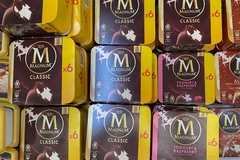
- Industry news
Industry news
- Category news
Category news
- Reports
- Key trends
- Multimedia
- Journal
- Events
- Suppliers
- Home
- Industry news
Industry news
- Category news
Category news
- Reports
- Key trends
- Multimedia
- Events
- Suppliers
Commission Clears Syngenta’s Acquisition of Monsanto's Sunflower Seed Business, Subject to Conditions

The decision is conditional upon the divestment of Monsanto’s sunflower hybrids, commercialised or under official trial in Spain and Hungary, as well as the parental lines used in the creation of those hybrids or currently under development for the creation of hybrids for Spain and Hungary.

19 Nov 2010 --- The European Commission has cleared under the EU Merger Regulation the acquisition of the global sunflower seed business of the US company Monsanto by Syngenta of Switzerland. The notified transaction combines two leading sunflower seed suppliers in Europe, with significant breeding activities.
The decision is conditional upon the divestment of Monsanto’s sunflower hybrids, commercialised or under official trial in Spain and Hungary, as well as the parental lines used in the creation of those hybrids or currently under development for the creation of hybrids for Spain and Hungary. This is because the in-depth investigation confirmed the Commission's concerns with respect to the commercialisation of sunflower seeds in Spain and Hungary, where the transaction would have removed a considerable and innovative competitor to Syngenta, reinforcing the latter's market leader position. The transaction also raised concerns with regards to the activities of exchange and licensing of sunflower varieties, insofar as the merging parties would be in a position to restrict the access of competitors to input necessary for the commercialisation of sunflower seeds. In light of the commitments, the Commission concluded that the transaction would not significantly impede effective competition in the internal market or any substantial part of it.
Commission Vice President in charge of Competition Policy, Joaquín Almunia, said: “Syngenta has offered significant remedies to ensure that the transaction will not hamper the development of new sunflower varieties in the EU, or increase prices or reduce customers' choice of sunflower seeds in Spain and Hungary".
The proposed transaction combines two leading sunflower seed suppliers in Europe. Both are strong in the breeding and trading of new sunflower varieties (that is, sunflower hybrid seeds and parental lines) and in the commercialisation of sunflower hybrid seeds. Hybrids result from controlled pollination (as opposed to natural pollination by insects, birds or wind), through the breeding and crossing of parental lines. This ensures that all seeds descend from parents with known traits and have specific desired characteristics, such as disease-resistance or drought-resistance. Seed companies try constantly to develop new sunflower hybrid seeds, more resistant and producing better yield. In order to do so, most companies exchange and license parental lines with other breeders ("trading of varieties") with the aim of accelerating the long and complex breeding process. Sunflower hybrid seeds are then multiplied and sold to distributors and cooperatives ("commercialisation of sunflower seeds"). Sunflower seeds are ultimately purchased and sowed by farmers every year. Syngenta is also a significant producer of seed treatment products (fungicides and insecticides), which are applied to sunflower seeds in the early stage of their development to protect them from pests and diseases.
The Commission’s investigation showed that the transaction, as initially notified, would have resulted in high market shares combined with limited prospects of entry and expansion in both the Spanish and the Hungarian markets for the commercialisation of sunflower hybrids. It would also have increased the ability and incentives for the merged entity to significantly reduce its activities of exchange and licensing of sunflower varieties in the EU, leading notably to a reduction in innovation, a foreclosure of competitors in the markets for the commercialisation of sunflower seeds and ultimately to a reduction of choice of sunflower seed hybrids for customers. The investigation was however able to dispel the initially identified concerns regarding the shutting out of competitors from the markets for sunflower seed treatment products.
With a view to removing the Commission's concerns with regard to sunflower seeds, Syngenta offered to divest Monsanto’s hybrids commercialised in Hungary and in Spain in the last two years, as well as the hybrids already under official trial for registration in these same countries. Additionally, Syngenta offered to divest Monsanto’s parental lines used to develop these hybrids, as well as the pipeline parental lines currently under development with the aim of producing hybrids for the markets of Spain and Hungary. The commitments include notably the right to use, cross, breed and license the offered parental lines, and to commercialise and license the resulting hybrids. The geographic scope of the rights to commercialize the hybrids varies according to whether the hybrid has been already commercialised or is already under official trials or will be the result of further crossing and breeding by the acquirer of the divested businesses. These rights may extend to Spain and/or Hungary, the EU or the EU plus Russia and the Ukraine or Turkey, the most significant European sunflower growing countries outside the EU. The extension of the rights to commercialize some types of hybrids to Russia, the Ukraine and Turkey was notably necessary to fully ensure the long term viability of the divested businesses.
The scope of the remedy package thus ensures that the businesses to be divested can be run in a viable and sustainable manner and that the purchaser will be able to take over the competitive role exercised by Monsanto in the markets for the trading of sunflower varieties in the EU and for sunflower seed commercialisation in Spain and Hungary. The Commission therefore concluded that the commitments offered were adequate to remedy its concerns. The Commission's decision is conditional upon full compliance with the commitments.
The transaction did not originally qualify for review under the EU Merger Regulation as it did not meet the turnover thresholds. It was initially notified to the Spanish and Hungarian competition authorities, who subsequently requested the Commission to examine the transaction. It was notified on 28 April to the Commission, which started an in-depth investigation on 21 June.










